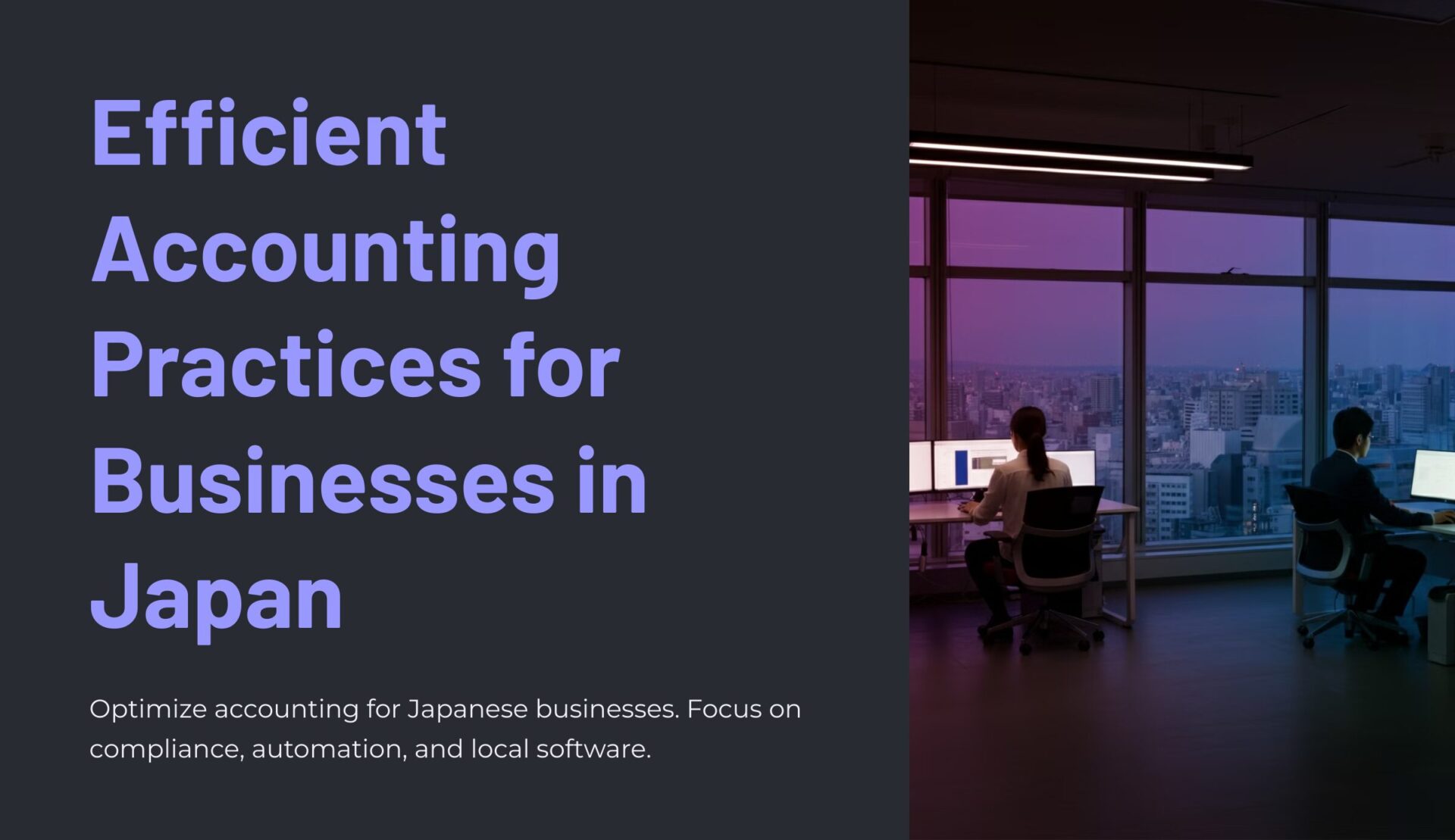Structuring without input
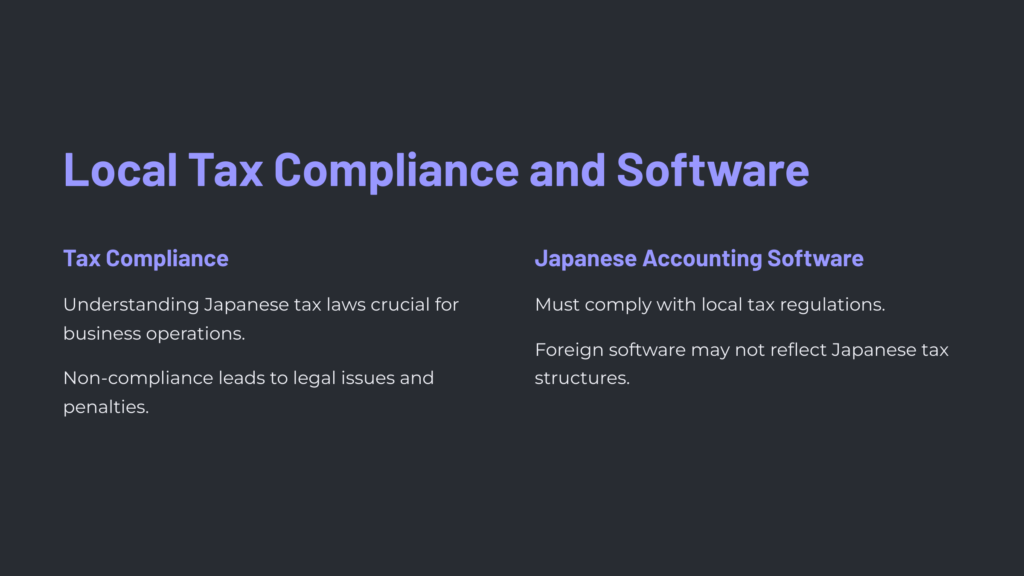
First, aim to create a system that does not require input. Instead of manually entering piles of paper receipts and invoices, digital data is increasingly being directly reflected in accounting systems.
For example, an application that allows you to photograph receipts and invoices with your smartphone and automatically convert them into data eliminates the need for manual input. Furthermore, since such data is managed in the cloud, it can be accessed anytime, anywhere, reducing the risk of data loss.
However, we do not thoroughly recommend this method. If this payment is made with a specific credit card, there is no need to take a picture of the receipt. You are, of course, obligated to save the receipt.
Many tools can automate the creation and transmission of invoices and payment confirmations. These features allow you to focus on running your business instead of being bogged down with daily details. They can save you time and effort in your regular business.
API Linkage
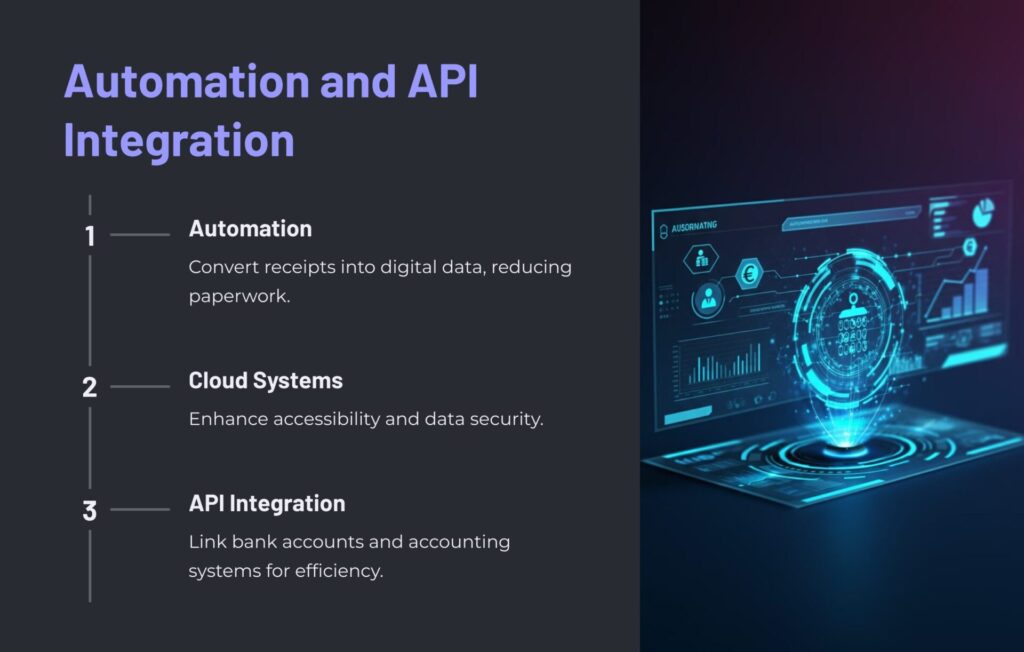
To further improve efficiency, I would like to focus on using APIs (Application Programming Interfaces) to link systems; APIs allow, for example, bank account and credit card transaction data to be automatically imported into the accounting system.
Utilizing APIs eliminates the need to enter transaction details, dramatically simplifying daily accounting tasks manually. In particular, by linking bank accounts with accounting software, transfers, deposits, and payment confirmations can be handled automatically, eliminating the need for accounting staff.
Matching bank accounts and accounting records can be labor-intensive. However, since you will be relieved of this detailed monthly task, this initial investment and system creation will be pretty effective.
If you are operating an EC site, you can also link sales data from your EC platform directly to your accounting software. Even if you do not have an e-commerce site, you can often synchronize with billing systems. Stripe and PayPal would be an example.
By utilizing API integration, you can prevent data capture errors and get an accurate real-time picture of your financial situation.
Data Linkage
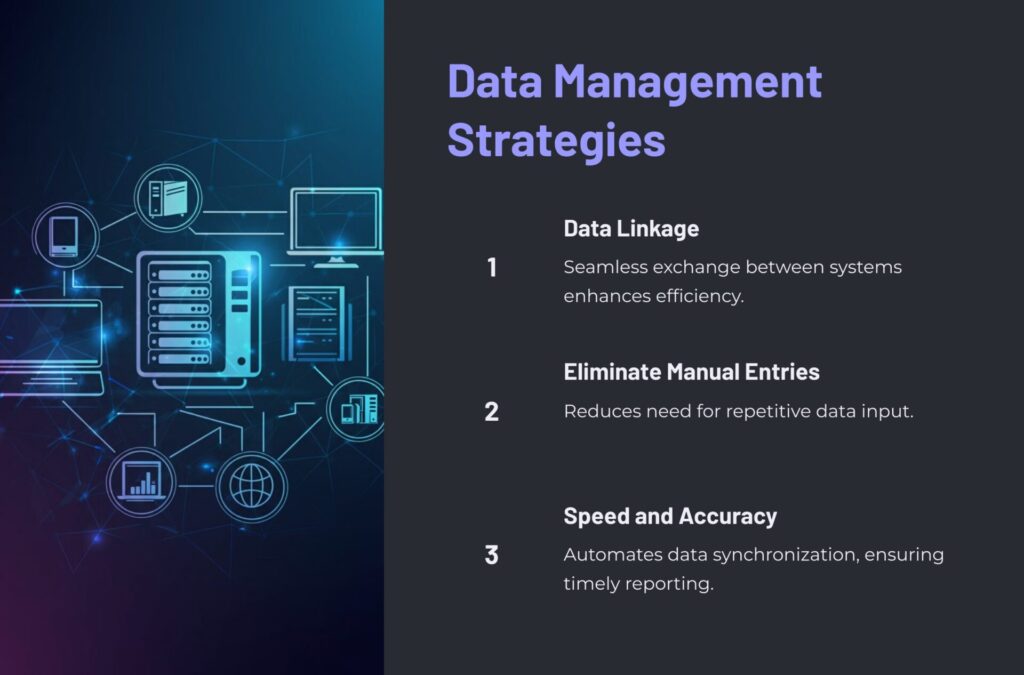
In addition to API integration, data integration between systems is essential to improve business efficiency. Data integration is a mechanism that allows different systems to exchange data and reflect information seamlessly.
There are two reasons why data linkage is necessary.
Gain Speed
One reason is that inputting data into accounting software is time-consuming. Cloud software inevitably runs at only about the processing speed of a browser. Also, using desktop-installed software does not drastically change that speed but will limit it to some degree.
If you enter this in a data linkage, it takes only a few seconds to enter 100 cases; many people would find it easier to do this in Excel, Google Spreadsheet, etc. It is simply a text entry.
Cooperation with Services that do not allow API integration
Another is that a surprisingly large number of services cannot be linked to APIs; credit card “A” can often be linked, but credit card “B” cannot.
In such cases, manually entering data individually would be inefficient. Data linkage is an indispensable tool to avoid this.
Integration with the Software at Hand
Data integration is essential to synchronize with other software. For example, by linking a sales management system with an accounting system, sales data is automatically reflected in the accounting process, eliminating the need for manual data entry and posting. Furthermore, by linking payroll software with accounting software, salary data, and social insurance premiums can be calculated automatically.
Thus, linking data between systems can prevent human error and greatly improve the speed and accuracy of accounting work.
Structured to use Japanese accounting software
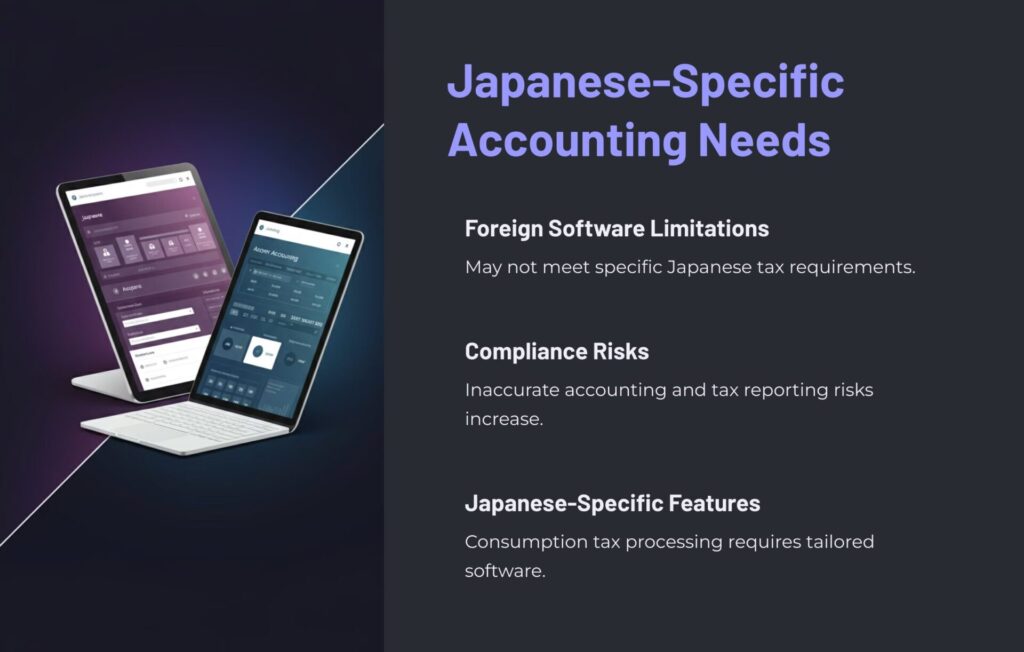
In the Japanese business environment, choosing accounting software is one of the most critical issues. In particular, with the proliferation of foreign accounting software, some say they do not want to use Japanese accounting software. However, it is necessary to use accounting software that complies with Japanese domestic laws, especially regarding taxation. Here, we will explain why in detail.
Consumption Tax Processing Inevitably Requires Japanese Software
Japanese tax processing, especially consumption tax, has a unique structure, and Japanese accounting software is essential for accurate processing. Specific rules exist for consumption tax payment methods and calculations, and software that is fully compliant with Japanese tax laws is required to handle these accurately. Foreign software may not properly reflect the structure of consumption tax calculations and deductions, which may result in inaccurate tax reporting.
Legal System also Needs to be Japanese.
Accounting and taxation in Japan are based on a system of laws and regulations that differ from country to country. For example, corporate and income taxes in Japan must be calculated according to Japanese domestic regulations, and accounting software that supports these taxes is limited to those produced domestically.
Software such as QuickBooks once entered the Japanese market but did not penetrate well. Although it can be used in Japanese, it is not fully compliant with Japanese taxation and accounting standards because it is not compliant with Japanese laws and regulations. Therefore, using QuickBooks in Japan may require additional procedures and adjustments to meet local accounting and tax standards.
Eventually, it will become necessary to work with Japanese accounting software.
Using non-Japanese accounting software risks inaccurate accounting and tax reporting because it does not reflect minor differences in laws and regulations. Therefore, it is recommended to use software that complies with Japanese laws and regulations, mainly if your business is located in Japan.
Services I Offer
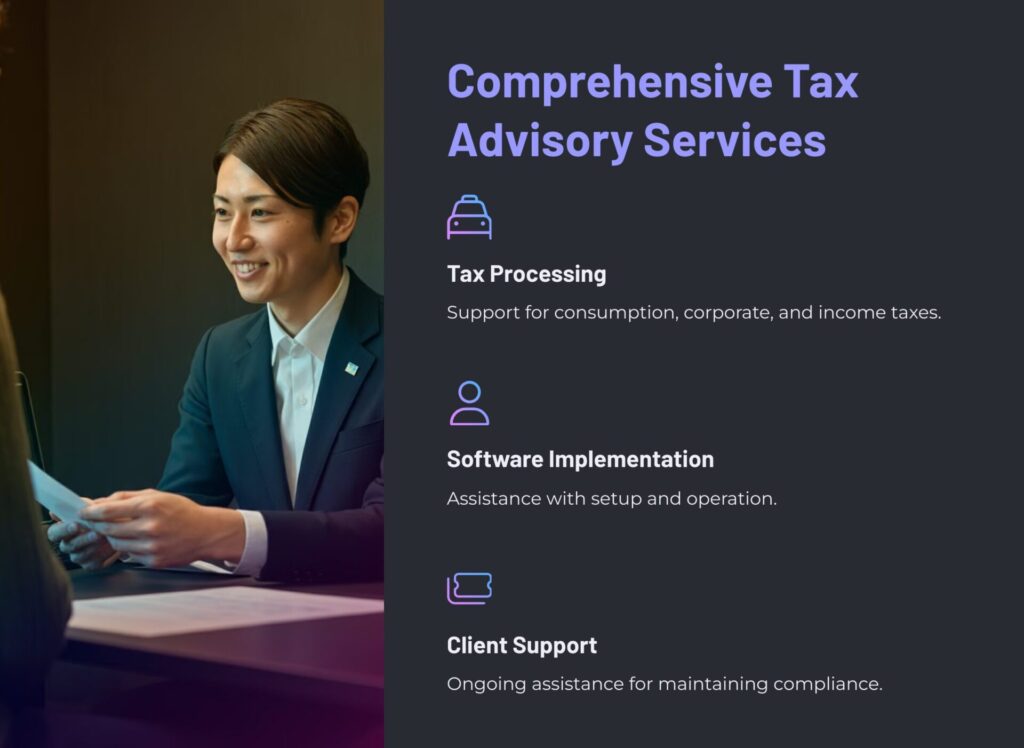
We use accounting software fully compliant with Japanese laws and taxation systems.
On the other hand, however, we also receive requests for accounting to be completed approximately in English.
To satisfy both of these needs, we offer an optional service that allows you to use Japanese accounting software but still see the final output in English. In this way, we hope to help you make valuable accounting for your strategy!
I support our clients in accurately processing consumption, corporate, and income taxes and keeping up with the latest legal changes so that they can focus on their business with peace of mind. With our advisory contracts, we provide support every step of the way, from software implementation to operation, to help you systemize efficient and accurate accounting processes.
Tax Advisory services can solve these problems. I am offering campaign prices, so please contact me for more information.

